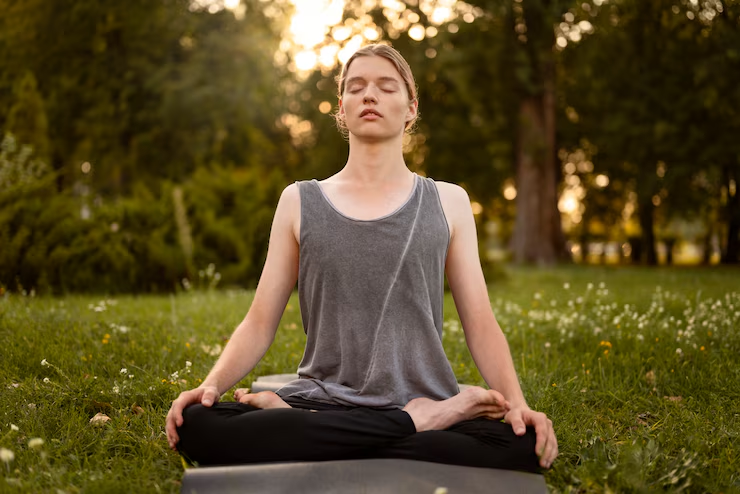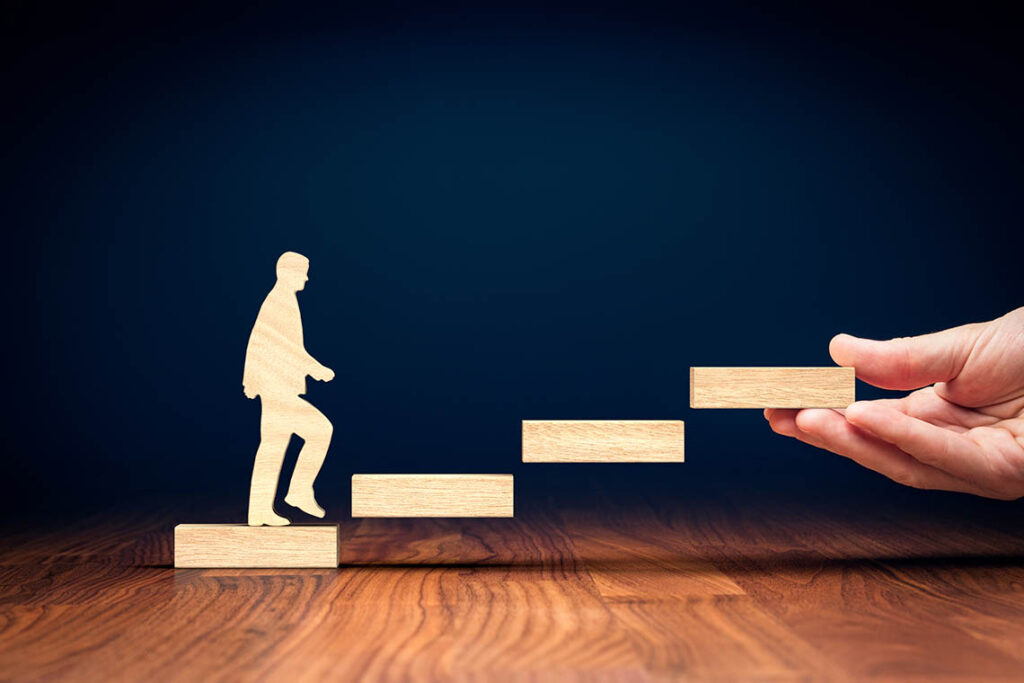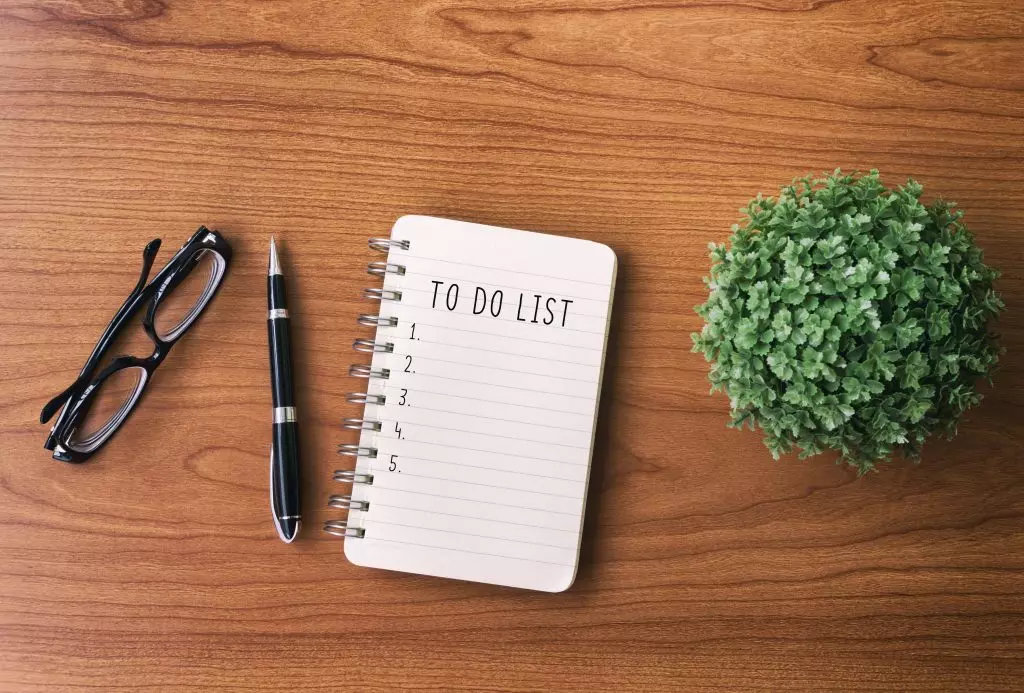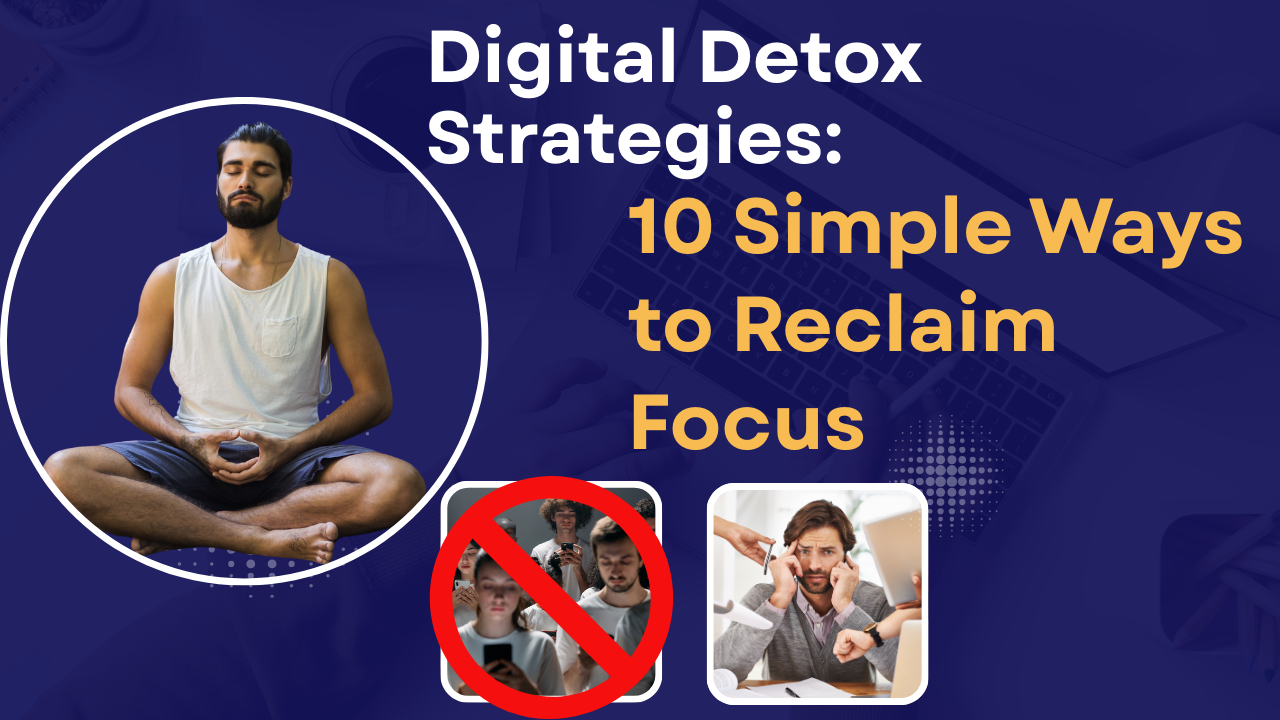In today’s fast-moving world, finding balance is more important than ever. A balanced lifestyle supports good health, emotional peace, mental clarity, and happiness. It means more than just eating healthy or exercising—it’s about caring for every part of your life.
Balanced lifestyle tips include managing stress, getting enough sleep, staying active, and making time for things you enjoy. Practicing mindfulness, setting priorities, and keeping a regular routine can help you stay focused and calm throughout the day. Small changes in your daily habits can lead to big improvements in your overall well-being.
This guide shares easy and realistic ways to build a better daily routine. With science-backed advice and practical steps, these balanced lifestyle tips can help you stay healthy and happy. By taking care of your body and mind every day, you can enjoy a more peaceful and rewarding life, even during busy times.

What Is a Balanced Lifestyle ?
A balanced lifestyle means living in a way that creates harmony between different parts of your life, such as work, personal time, relationships, and health. It helps you manage daily stress, keep your body healthy, and enjoy meaningful connections with others. When you balance these areas, you feel more in control and at peace with your life. It’s not about being perfect but about being aware of your needs and making small, consistent efforts to meet them.
Following balanced lifestyle tips can guide you toward better habits and a more fulfilling routine. These tips often include staying active, eating nutritious foods, getting enough rest, and spending quality time with loved ones. Taking breaks, setting boundaries, and making time for hobbies also play a big role in staying balanced.
The key is to keep your mind and body in sync while allowing space for personal and professional growth. With the right approach and mindset, you can build a lifestyle that supports your overall well-being.
The Pillars of a Balanced Lifestyle
To achieve true balance, consider these core areas:
Physical Health
Mental and Emotional Well-being
Work-Life Balance
Social Connections
Personal Development
Spiritual Health (if applicable)
Let’s break down each of these and explore actionable tips for improvement.
Physical Health Tips
a. Prioritize Nutrition

Prioritizing nutrition is one of the most important balanced lifestyle tips for maintaining good health and energy levels. Eating a variety of whole foods—such as fruits, vegetables, lean proteins, and whole grains—helps fuel your body and mind. A well-balanced diet supports your immune system, keeps your digestion healthy, and improves your focus throughout the day.
Making smart food choices doesn’t mean strict dieting. It’s about being mindful of what you eat and choosing foods that nourish you. Try to limit processed foods and sugary drinks, and drink plenty of water to stay hydrated. Planning meals ahead and keeping healthy snacks nearby can also help you stay on track.
By focusing on good nutrition, you create a strong foundation for your overall well-being. Along with other balanced lifestyle tips like regular exercise and stress management, eating well plays a key role in achieving a healthier, more balanced life.
Eat whole, nutrient-rich foods: vegetables, fruits, lean proteins, healthy fats, and whole grains.
Avoid processed foods, excessive sugar, and trans fats.
Stay hydrated—aim for 8–10 glasses of water per day.
Practice mindful eating—listen to your body’s hunger and fullness cues.
b. Exercise Regularly
Exercising regularly is one of the most effective balanced lifestyle tips for improving both physical and mental health. Physical activity helps strengthen your muscles, boost your heart health, and improve flexibility. It also supports weight management and can reduce the risk of many long-term health problems.
Beyond the physical benefits, exercise plays a big role in mental well-being. It can reduce stress, improve mood, and increase energy levels. Even a short daily walk, light stretching, or simple home workouts can make a big difference over time.
You don’t need to follow an intense routine to stay active. The key is to find activities you enjoy and make them part of your regular schedule. Whether it’s dancing, swimming, yoga, or cycling, consistency matters most. Including regular exercise in your daily routine, along with other balanced lifestyle tips, helps you stay healthy, focused, and full of energy.
Incorporate at least 30 minutes of moderate exercise five days a week.
Include a mix of cardio (e.g., walking, cycling), strength training, and flexibility exercises (e.g., yoga, stretching).
Choose activities you enjoy to ensure consistency.
c. Prioritize Sleep
Prioritizing sleep is one of the most essential balanced lifestyle tips for maintaining good health and emotional well-being. Quality sleep allows your body to rest, repair, and recharge. It improves memory, focus, mood, and helps regulate important functions like metabolism and immunity.
Lack of sleep can lead to fatigue, poor concentration, irritability, and even health problems over time. To improve your sleep, try going to bed and waking up at the same time each day. Avoid screens before bedtime, create a calm sleeping environment, and reduce caffeine in the evening.
Getting 7 to 9 hours of sleep each night is ideal for most adults. By making sleep a priority, you’ll feel more refreshed, productive, and balanced each day. Along with other balanced lifestyle tips like healthy eating and regular exercise, restful sleep is a key part of living a happy and healthy life.
Aim for 7–9 hours of quality sleep per night.
Maintain a consistent sleep schedule, even on weekends.
Create a relaxing bedtime routine—limit screen time, caffeine, and heavy meals before bed.
Mental and Emotional Well-Being

a. Practice Mindfulness
Practicing mindfulness is one of the most helpful balanced lifestyle tips for staying calm and focused in today’s busy world. Mindfulness means paying full attention to the present moment without judgment. It helps you become more aware of your thoughts, feelings, and actions, allowing you to respond calmly instead of reacting quickly.
Simple activities like deep breathing, meditation, or mindful walking can help reduce stress and improve mental clarity. Even just a few minutes a day can make a big difference in how you feel and handle daily challenges.
Mindfulness also helps improve sleep, boost concentration, and strengthen emotional health. It encourages you to slow down, enjoy the little things, and feel more balanced. By adding mindfulness to your routine, along with other balanced lifestyle tips like healthy eating and exercise, you can create a more peaceful, focused, and meaningful life.
Meditation, deep breathing, and journaling help reduce stress and improve focus.
Mindfulness apps like Headspace or Calm can guide beginners.
b. Manage Stress Effectively
Managing stress effectively is one of the most important balanced lifestyle tips for maintaining overall health. Stress is a normal part of life, but too much of it can affect your mood, sleep, energy levels, and even your physical health. Learning how to handle stress in healthy ways can help you stay calm, focused, and in control.
Simple techniques like deep breathing, journaling, talking to someone you trust, or taking short breaks during the day can help reduce stress. Regular exercise, getting enough sleep, and practicing mindfulness also play a big role in stress relief.
It’s important to know your limits and avoid taking on too much. Saying no when needed and setting clear boundaries can protect your peace of mind. By managing stress and following other balanced lifestyle tips, you can create a healthier, more peaceful, and more enjoyable daily life.
Identify stress triggers and address them proactively.
Take breaks throughout the day.
Use stress-reducing techniques such as progressive muscle relaxation or visualization.
c. Cultivate Emotional Intelligence
Cultivating emotional intelligence is one of the key balanced lifestyle tips for building better relationships and improving overall well-being. Emotional intelligence means understanding your own emotions, managing them in a healthy way, and recognizing the feelings of others. It helps you stay calm during challenges and respond with empathy and care.
Being emotionally aware allows you to communicate more clearly, resolve conflicts peacefully, and strengthen connections with family, friends, and coworkers. It also helps you handle stress, make thoughtful decisions, and boost your self-confidence.
You can improve emotional intelligence by practicing self-reflection, active listening, and being open to feedback. Taking time to understand your feelings before reacting can lead to better outcomes in both personal and professional life. Along with other balanced lifestyle tips, emotional intelligence supports a happier, healthier, and more balanced way of living.
Improve your self-awareness and ability to manage emotions.
Practice empathy, active listening, and effective communication.
Seek therapy or counseling if you’re struggling with unresolved emotional issues.
Work-Life Balance
a. Set Clear Boundaries

Setting clear boundaries is one of the most valuable balanced lifestyle tips for protecting your time, energy, and mental well-being. Boundaries help you define what is acceptable in your relationships, work, and personal life. They prevent burnout, reduce stress, and help you stay focused on what truly matters.
When you set healthy boundaries, you learn to say no without guilt and prioritize your needs. This creates space for rest, self-care, and meaningful connections. It also helps others understand your limits and respect your time.
Clear boundaries support balance by keeping you from overcommitting or feeling overwhelmed. Whether it’s limiting screen time, managing workload, or protecting quiet time, boundaries allow you to live more intentionally. Combined with other balanced lifestyle tips like mindfulness, exercise, and good sleep, setting boundaries helps you lead a healthier, more peaceful, and fulfilling life.
Separate work from personal time, especially if working remotely.
Use tools like calendars and timers to manage work hours effectively.
b. Learn to Say No
Learning to say no is one of the most powerful balanced lifestyle tips for maintaining control over your time and energy. Many people feel pressured to say yes to every request, but doing so can lead to stress, exhaustion, and even resentment. Saying no is not selfish—it’s a healthy way to protect your well-being.
When you say no to things that don’t align with your goals or values, you make room for what truly matters. It allows you to focus on your priorities, reduce overload, and create a more balanced life. Whether it’s turning down extra work or social events, being honest about your limits is essential.
Practice saying no politely but firmly, without over-explaining. With time, it becomes easier and more natural. Along with other balanced lifestyle tips like setting boundaries and managing stress, learning to say no helps you lead a calmer, healthier, and more intentional life.
Overcommitting can lead to burnout.
Prioritize tasks that align with your values and responsibilities.
c. Take Breaks and Vacations
Taking breaks and vacations is an essential part of balanced lifestyle tips for maintaining your health and productivity. Continuous work without rest can lead to burnout, fatigue, and decreased focus. Regular breaks throughout the day allow your body and mind to recharge, helping you stay fresh and efficient.
Even short breaks—like stretching or stepping outside for a few minutes—can make a big difference. Longer breaks, such as vacations, provide a chance to fully disconnect, relax, and reset. These breaks help reduce stress, improve creativity, and strengthen overall well-being.
Incorporating time off into your routine, whether it’s daily breaks or annual vacations, ensures you don’t overwork yourself. By taking time for rest, along with other balanced lifestyle tips like managing stress and practicing mindfulness, you can maintain a healthier and more sustainable lifestyle.
Regular breaks enhance productivity and reduce fatigue.
Take time off work when needed—your mental and physical health will thank you.
Social Connections

a. Nurture Meaningful Relationships
Nurturing meaningful relationships is a key aspect of balanced lifestyle tips for improving emotional health and happiness. Strong, supportive connections with family, friends, and loved ones provide a sense of belonging and stability. These relationships offer encouragement during tough times and help you celebrate life’s successes.
Investing time and effort into these bonds strengthens trust, communication, and mutual understanding. Whether it’s regular check-ins, shared activities, or simply listening, these small acts deepen your connections and foster emotional well-being.
Meaningful relationships also provide a strong support system, helping you navigate life’s challenges. By focusing on quality connections and maintaining healthy boundaries, you can cultivate a life filled with love, support, and joy. Along with other balanced lifestyle tips, nurturing relationships promotes a healthier, happier, and more fulfilled life.
Spend quality time with family and friends.
Stay in touch with loved ones, even if it’s just a message or call.
b. Join Communities
Joining communities is one of the most valuable balanced lifestyle tips for building connections and fostering personal growth. Being part of a community provides a sense of belonging and support, helping you feel less isolated. Whether it’s a hobby group, professional network, or volunteer organization, joining communities allows you to share experiences, gain new perspectives, and make meaningful relationships.
Communities offer opportunities for growth, learning, and support. They help you stay motivated, improve your skills, and stay connected with others who share similar interests.
By actively participating in communities, you strengthen your social network and enrich your life. Combining this with other balanced lifestyle tips like managing stress and prioritizing sleep creates a more fulfilling and well-rounded life.
Participate in clubs, classes, or volunteering groups.
Build social support networks that encourage positivity and growth.
c. Limit Toxic Relationships
Limiting toxic relationships is an essential aspect of balanced lifestyle tips for maintaining mental and emotional health. Toxic relationships drain your energy, increase stress, and can negatively impact your self-esteem. By setting clear boundaries and distancing yourself from individuals who bring negativity, you protect your well-being and create space for healthier connections.
Surrounding yourself with supportive, positive people is crucial for personal growth and happiness. Healthy relationships encourage you to be your best self, while toxic ones can hold you back.
Recognizing when a relationship is harmful and taking steps to limit or end it is key to creating balance in your life. By prioritizing positive connections and avoiding negativity, along with other balanced lifestyle tips, you can build a stronger, more fulfilling social circle that supports your overall well-being.
Identify relationships that drain your energy or affect your self-esteem.
Set healthy boundaries or consider distancing from negative influences.
Personal Development

a. Set Goals and Review Them
Setting goals and regularly reviewing them is one of the most effective balanced lifestyle tips for staying focused and motivated. Clear goals give you direction and purpose, helping you prioritize what matters most in your life. Whether personal, professional, or health-related, goals provide a roadmap for progress.
It’s important to review your goals periodically to ensure you’re on track and adjust them as needed. This reflection allows you to celebrate achievements, identify challenges, and stay aligned with your values.
By setting realistic, achievable goals and consistently evaluating your progress, you maintain balance in various aspects of life. With this practice, alongside other balanced lifestyle tips, you create a sense of accomplishment and continue moving toward a more fulfilling and well-rounded life.
Short-term and long-term goals give life purpose and direction.
Use SMART (Specific, Measurable, Achievable, Relevant, Time-bound) goals for clarity.
b. Lifelong Learning
Lifelong learning is a key element of balanced lifestyle tips for personal growth and mental stimulation. Continuously seeking new knowledge and skills keeps your mind sharp, enhances creativity, and broadens your perspective. Whether through reading, taking courses, or exploring new hobbies, lifelong learning fosters a sense of achievement and curiosity.
Engaging in learning activities not only strengthens cognitive abilities but also boosts confidence and adaptability. It encourages you to embrace challenges, improve problem-solving skills, and stay open to change.
Incorporating lifelong learning into your routine adds variety and excitement to your life. By making time for learning, along with other balanced lifestyle tips like setting goals and managing stress, you create a richer, more fulfilling life, continuously evolving both personally and professionally.
Read books, take online courses, or attend seminars.
Personal development keeps the mind engaged and builds confidence.
c. Embrace Challenges
Embracing challenges is an important aspect of balanced lifestyle tips for personal growth and resilience. Facing obstacles head-on helps you build confidence, develop problem-solving skills, and grow stronger. Instead of avoiding challenges, seeing them as opportunities for learning and improvement allows you to push your limits and expand your potential.
When you embrace challenges, you become more adaptable and better equipped to handle life’s uncertainties. It encourages a positive mindset, helping you stay motivated and focused on your goals.
By stepping out of your comfort zone, you foster personal development and achieve greater success. Combining this with other balanced lifestyle tips, such as setting goals and practicing mindfulness, ensures you maintain balance while continuously evolving and achieving your best self.
Step out of your comfort zone regularly.
Challenges foster resilience, adaptability, and self-growth.
Digital Balance
a. Limit Screen Time
Limiting screen time is one of the most effective balanced lifestyle tips for improving both physical and mental well-being. Excessive screen time can lead to eye strain, disrupted sleep, and increased stress. By setting limits on how much time you spend on devices, you create more opportunities for physical activity, relaxation, and face-to-face interactions.
Taking regular breaks from screens helps reduce mental fatigue and increases focus. You can also use this time for activities like reading, walking, or spending time with loved ones, which promote a healthier lifestyle.
Setting boundaries around screen time, especially before bed, can improve sleep quality and reduce stress. Incorporating this into your routine, alongside other balanced lifestyle tips, allows you to achieve better overall balance, productivity, and well-being.
Monitor your daily screen use—especially on social media.
Use apps like Forest or Freedom to minimize distractions.
b. Practice Digital Detox
Practicing a digital detox is an important aspect of balanced lifestyle tips for improving mental clarity and reducing stress. Constant exposure to screens, especially through social media, can lead to information overload and emotional fatigue. Taking breaks from digital devices allows you to reconnect with the present moment, reduce anxiety, and focus on more meaningful activities.
A digital detox can be as simple as setting aside specific hours during the day or designating one day a week to unplug. This time away from screens offers an opportunity for relaxation, creativity, and quality time with loved ones.
By disconnecting from digital distractions, you improve your well-being and create a more balanced lifestyle. Incorporating this detox into your routine, along with other balanced lifestyle tips, helps foster a healthier, more mindful, and fulfilling life.
Schedule screen-free hours, especially during meals or before bed.
Engage in offline hobbies like reading, drawing, or nature walks.
c. Use Technology Mindfully
Using technology mindfully is an essential part of balanced lifestyle tips for maintaining mental and emotional well-being. In today’s digital age, it’s easy to become overwhelmed by constant notifications and screen time. Being mindful about how and when you use technology can help you stay focused, reduce stress, and create healthier habits.
Set boundaries for device use, such as limiting time on social media or using apps that promote mindfulness and productivity. Make intentional choices about when and how you engage with technology, ensuring it serves your well-being rather than hindering it.
Mindful technology use also includes being aware of how it affects your mood and energy. By applying this principle alongside other balanced lifestyle tips like prioritizing sleep and practicing mindfulness, you can foster a healthier relationship with technology and improve overall life balance.
Follow accounts that inspire or educate.
Unsubscribe from content that triggers stress, comparison, or negativity.
Time Management Tips

Use the Eisenhower Matrix to prioritize tasks based on urgency and importance.
Apply the Pomodoro Technique—work for 25 minutes, then take a 5-minute break.
Schedule your day with intention and avoid multitasking.
Common Mistakes That Disrupt Balance
Overworking: Constantly pushing yourself beyond your limits can lead to burnout, a state of physical and mental exhaustion that leaves you less effective and more prone to stress. Overworking reduces productivity over time and can negatively impact your health, relationships, and overall well-being.
Neglecting Self-Care: When you fail to take care of yourself, you’re unable to effectively care for others or meet your responsibilities. Self-care isn’t a luxury—it’s a necessity. Without it, you risk feeling drained, unmotivated, and emotionally depleted. You simply can’t pour from an empty cup.
Lack of Routine: Living without a clear routine creates chaos and unpredictability, which leads to stress and anxiety. A structured daily routine brings stability, helping you manage your time and responsibilities better. It provides a sense of control and allows you to prioritize what truly matters.
Unrealistic Expectations: Setting unattainably high standards for yourself often leads to disappointment and frustration. Striving for perfection can backfire, making you feel overwhelmed and unaccomplished. It’s essential to embrace progress over perfection and set realistic goals to avoid unnecessary stress.
Sample Daily Routine for a Balanced Lifestyle
| Time | Activity |
|---|---|
| 6:30 AM | Wake up and meditate (10 mins) |
| 7:00 AM | Exercise or walk |
| 8:00 AM | Healthy breakfast |
| 9:00 AM – 12:00 PM | Focused work/study |
| 12:00 PM | Lunch and short break |
| 1:00 PM – 4:00 PM | Work/study (light tasks) |
| 5:00 PM | Hobbies or social time |
| 6:30 PM | Dinner |
| 8:00 PM | Digital detox, reading, or journaling |
| 9:30 PM | Prepare for bed |
| 10:00 PM | Sleep |
Final Thoughts
Achieving a balanced lifestyle is not about perfection but about making intentional choices that support your physical, mental, emotional, and social well-being. By integrating healthy habits like regular exercise, mindful eating, stress management, and nurturing relationships, you can create a life of harmony and fulfillment. These balanced lifestyle tips are not one-size-fits-all—find what works best for you and stay consistent.
Remember, true balance is a continuous journey that requires reflection, adjustment, and self-compassion. As you align your daily routines with your core values and priorities, you’ll notice increased energy, reduced stress, and a deeper sense of contentment. Start with small, sustainable changes and build on them over time. With commitment and awareness, a balanced life isn’t just possible—it’s achievable and deeply rewarding. Let these balanced lifestyle tips guide you toward a healthier, more joyful future.
FAQs
- What does a balanced lifestyle mean ?
A balanced lifestyle means maintaining harmony between different aspects of your life—such as health, work, relationships, personal growth, and leisure. It involves managing time and energy in a way that supports your physical well-being, mental clarity, emotional stability, and overall happiness. - How can I start living a balanced lifestyle ?
Begin by assessing your current habits and identifying areas that need improvement. Start small—focus on one or two areas such as better sleep or regular exercise. Use simple, consistent routines and gradually build healthier habits across all life domains. - Why is balance important in life ?
A balanced life helps reduce stress, improves health, increases productivity, and enhances relationships. It also promotes a sense of purpose and inner peace, allowing you to enjoy life more fully and sustainably. - Can I have a balanced lifestyle with a busy schedule ?
Yes! Even with a busy life, balance is possible through effective time management, setting boundaries, prioritizing self-care, and focusing on what truly matters. Small changes, like taking short breaks or unplugging from screens, can make a big difference.


